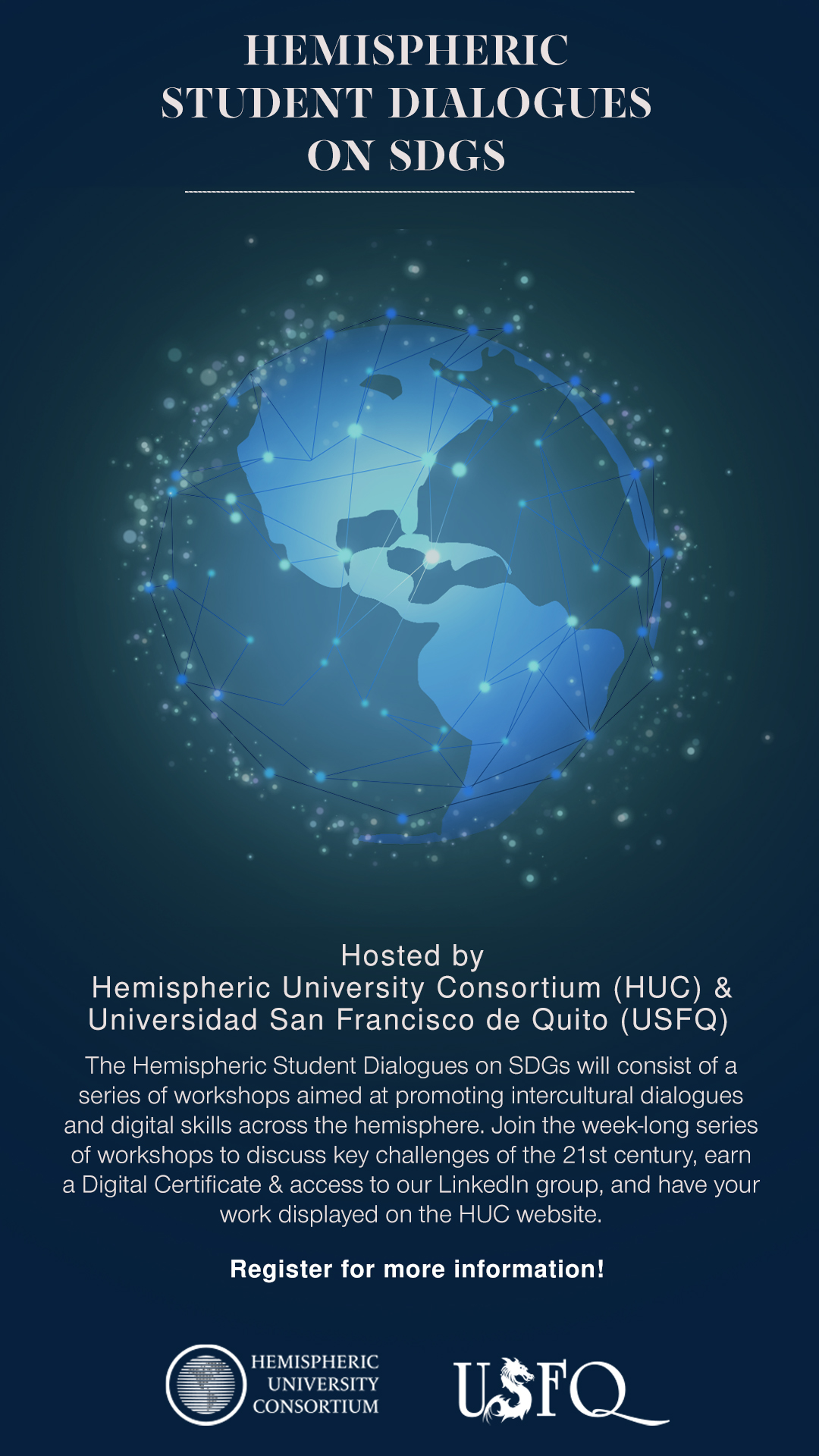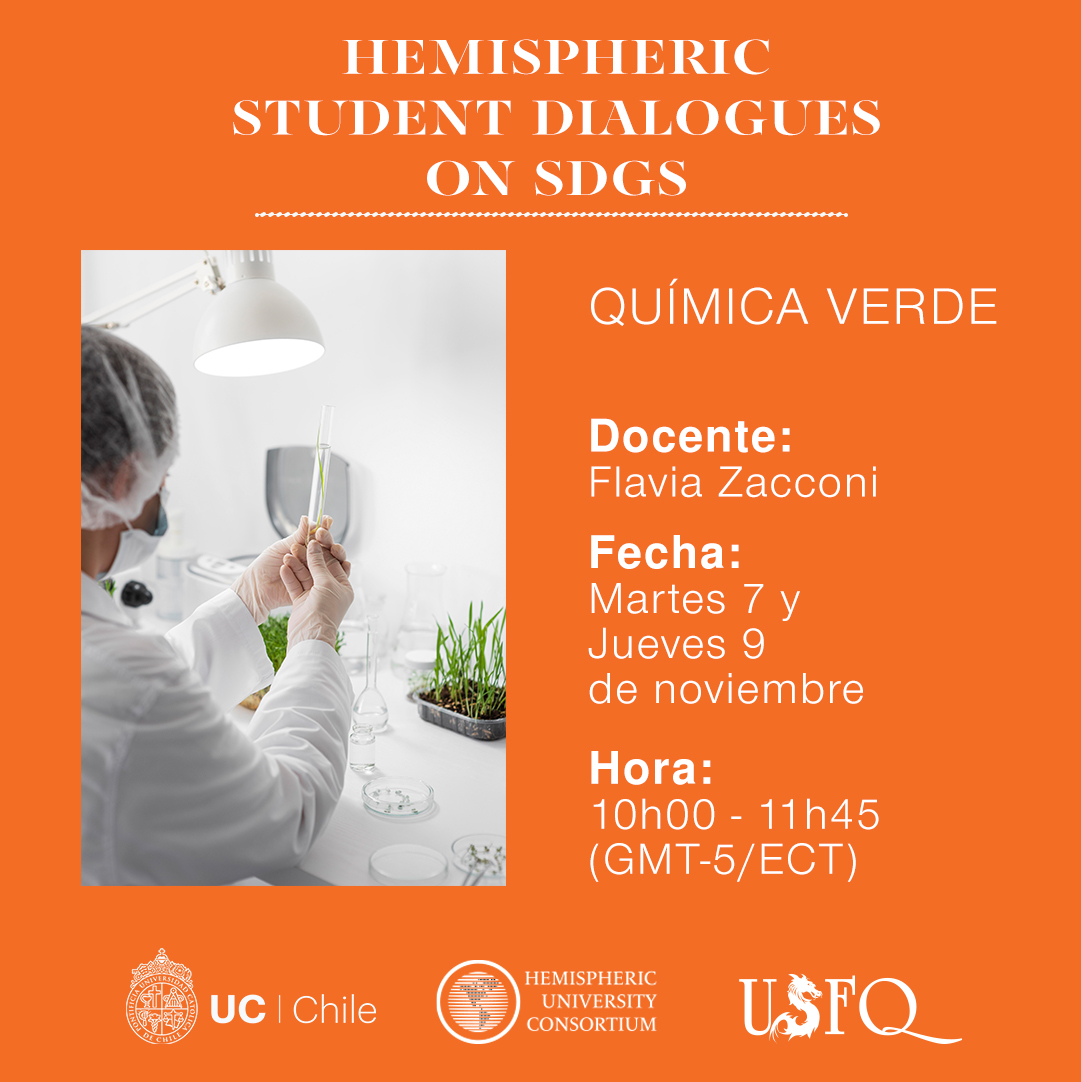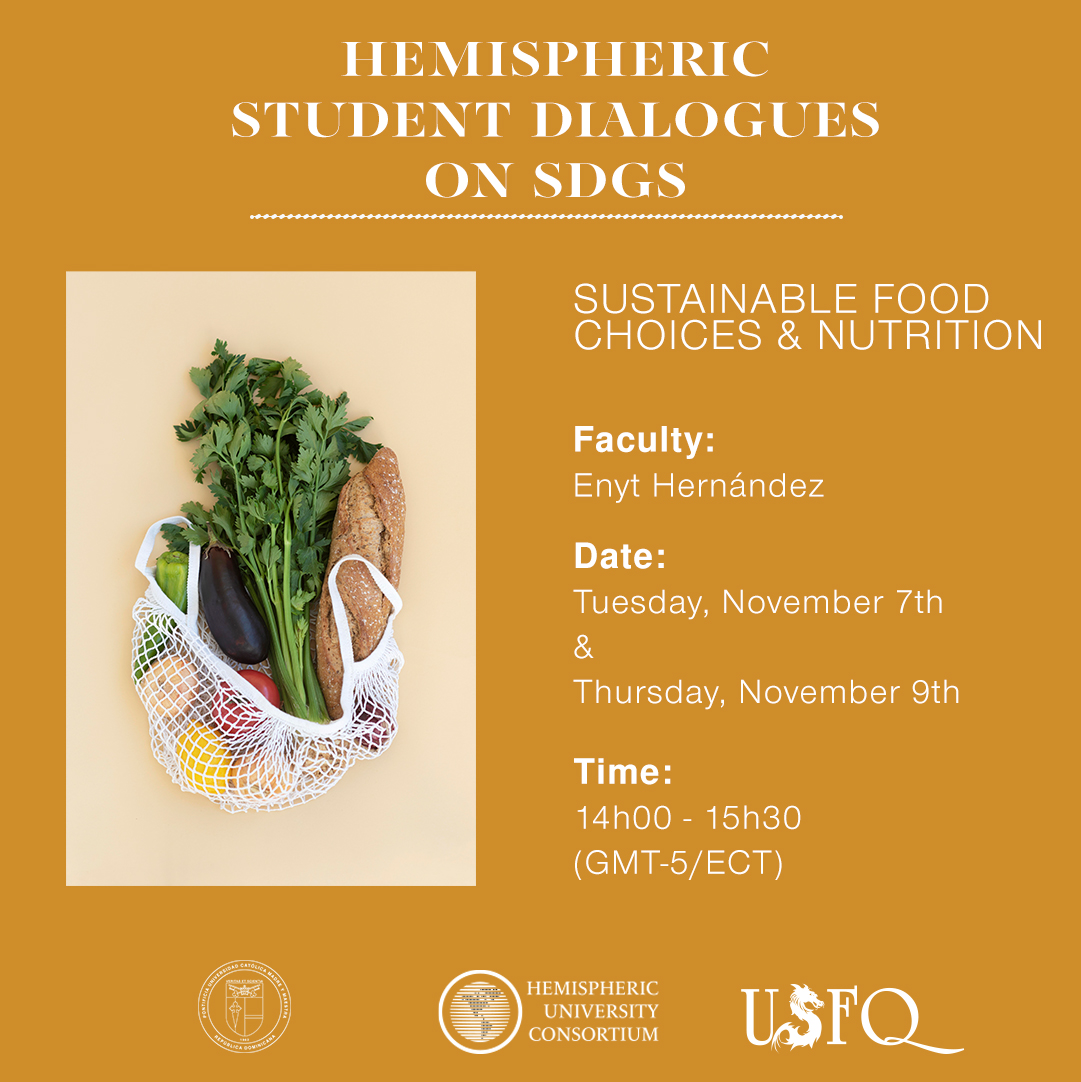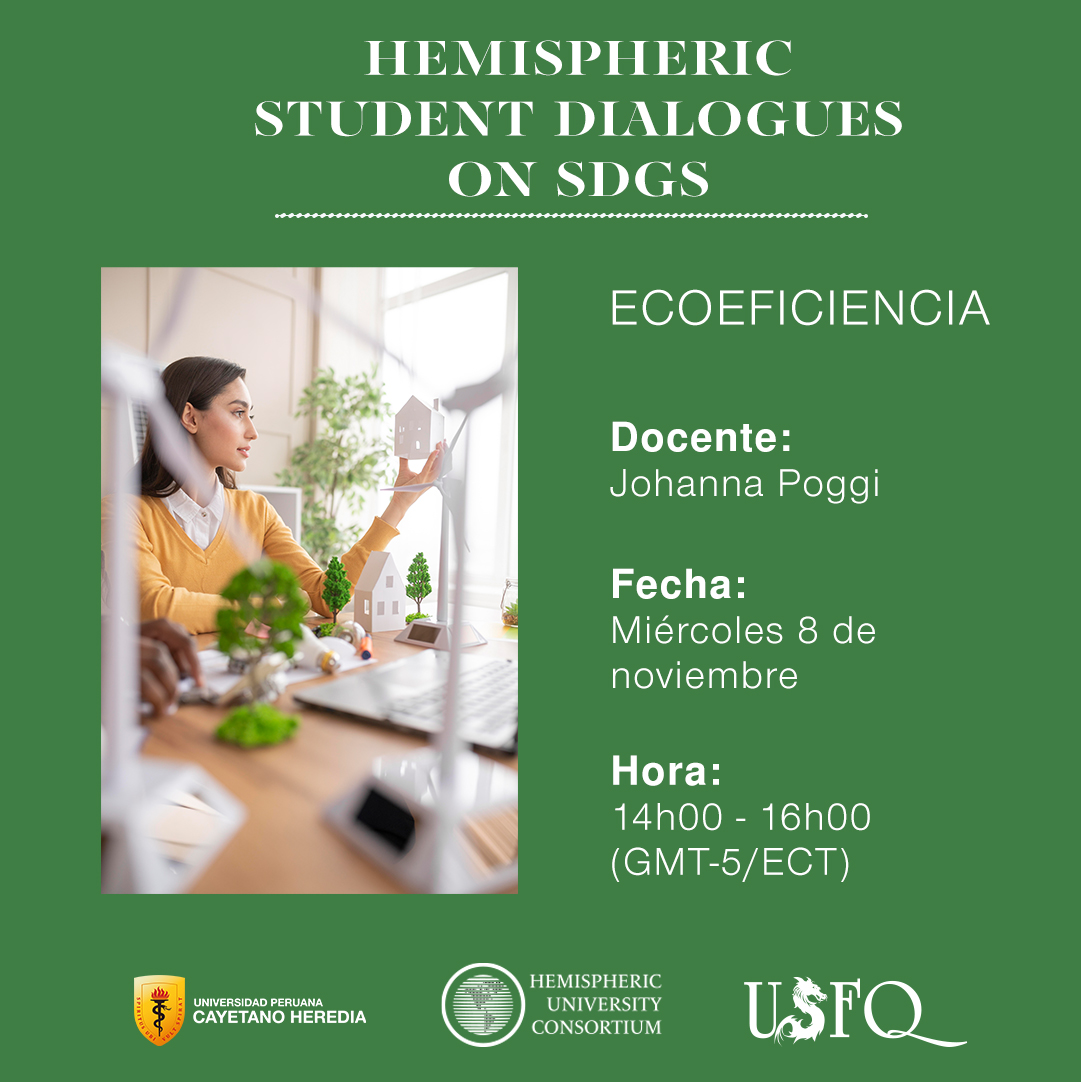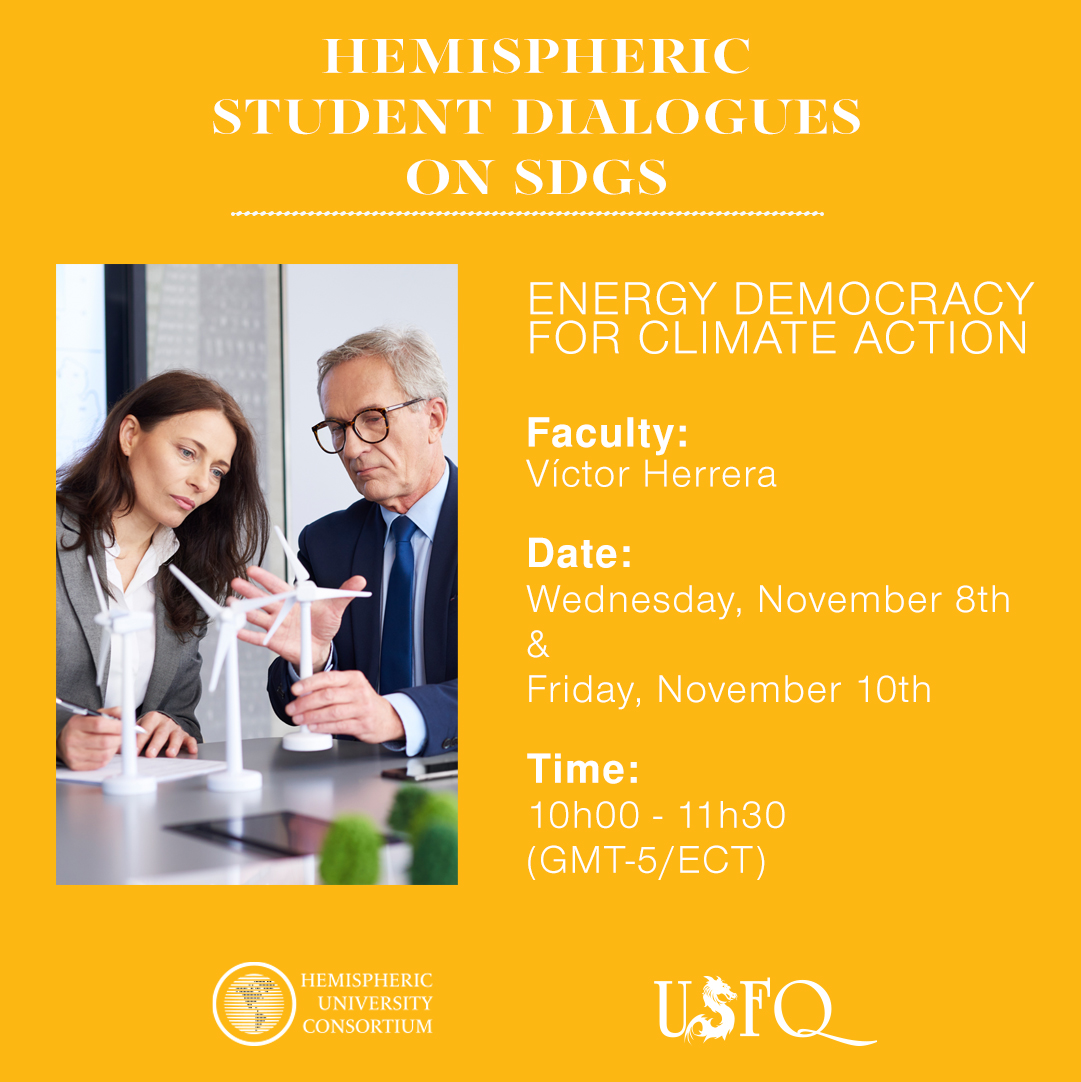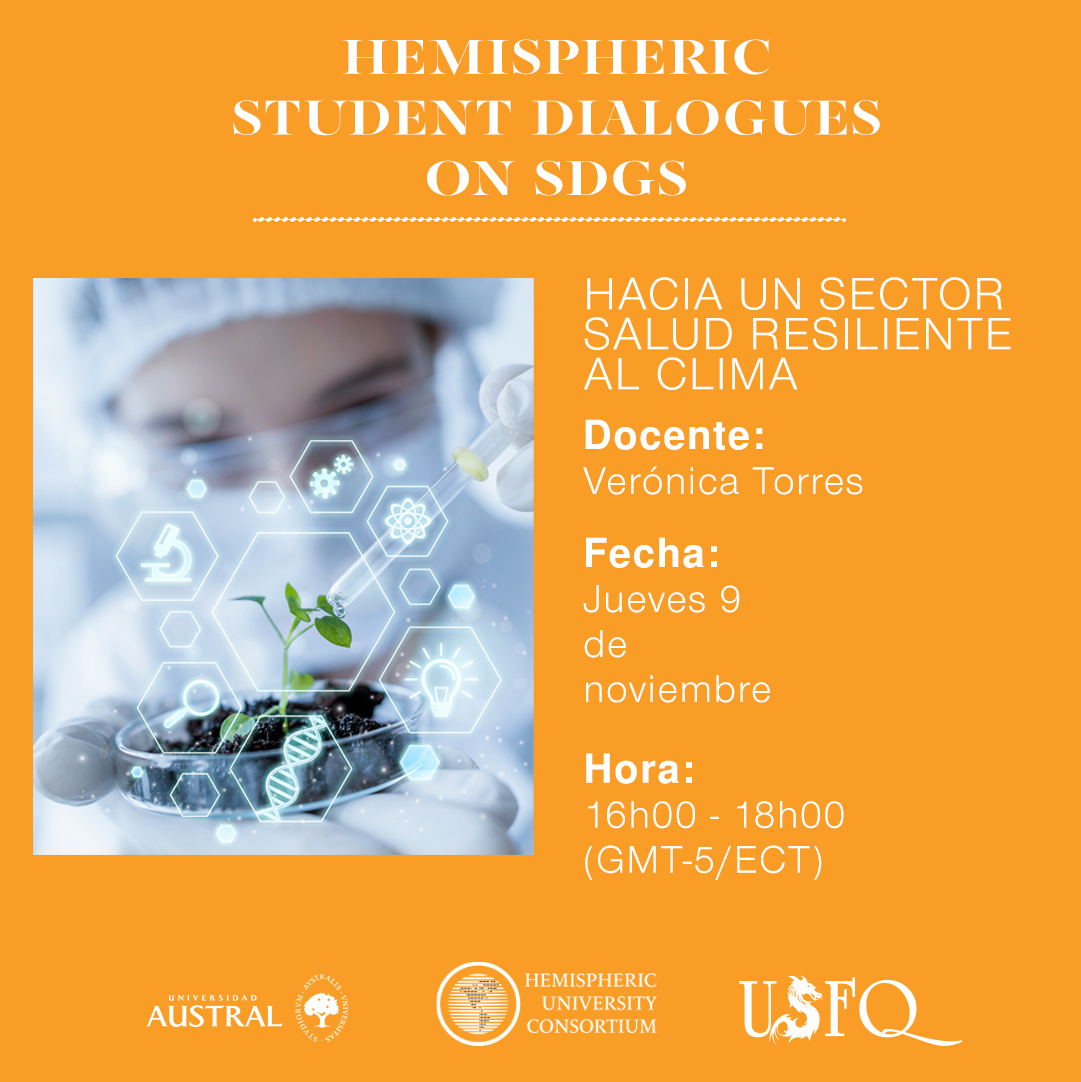OVERVIEW
Join us to engage in meaningful dialogue with students and faculty from across the western hemisphere, develop intercultural skills to earn a HUC Digital Certificate, and have your work displayed here on the Hemispheric University Consortium (HUC) website!
The Hemispheric Student Dialogues on SDGs provide an opportunity for virtual integration between students from Hemispheric University Consortium (HUC) member universities. Hosted by HUC & Universidad San Francisco de Quito (USFQ), the Hemispheric Student Dialogues on SDGs will consist of a series of workshops over a weeklong period. Students will join faculty and students from across the consortium to engage in virtual international dialogue using the SDGs & Key HUC challenges as a framework. Students who attend workshops will be assigned a collaborative deliverable (such as a video, photo gallery, infographics etc.) to be completed after the workshop which will be showcased online. Students will develop key intercultural and digital competencies to address the challenges of the 21st century. For more information and to register continue reading!
Logistics
When?
The workshops will be held over the span of one week: November 7-10 2023. Check the schedule below for specific workshop details
Who can join?
Any students from HUC universities, check here for participating Universities!
How does it work?
Students can sign up for only one workshop using the registration form below. All workshops will be capped at 30 participants, sign up now!
How to register?
Students will take part in pre-workshop and post-workshop asynchronous activities in addition to the synchronous workshop zoom session in order to receive a HUC Digital Certificate.
workshop schedule and registration
Liderado Por: Pontificia Universidad Católica de Chile
¡Acompáñanos en un apasionante viaje hacia un mundo más sostenible y consciente a través de la exploración de los fundamentos de la Química Verde (QV)! Esta es una disciplina que nació en 1998 con la formulación de los 12 Principios de Química Verde (12 PQV) por John Warner y Paul Anastas. Estos principios revolucionarios buscan transformar la forma en que concebimos y llevamos a cabo la ciencia, desde las grandes industrias hasta los laboratorios de investigación. Te adentrarás en emocionantes temas desde la economía atómica hasta el diseño de químicos seguros, y mucho más. Entenderás cómo la QV puede contribuir al mejoramiento de la crisis climática, la disminución del hambre en el mundo y la protección de la vida en la tierra y bajo el agua. ¡Este taller no es solo una oportunidad para aprender, sino también para reflexionar sobre tu papel como estudiante y futuro científico o tecnólogo!
Led by: Pontificia Universidad Católica Madre y Maestra
In a world facing pressing challenges of both food security and climate change, “Sustainable Food Choices and Nutrition” is a workshop designed to empower undergraduate students with the knowledge and tools needed to navigate the complex interplay between nutrition, sustainability, and the food industry. Explore the dynamic relationship between what we eat and its impact on the environment. You’ll learn about the intersection between nutrition and sustainability and understand the benefits of local sourcing in reducing the carbon footprint. Join us and gain valuable insights to make informed food choices, contribute to a more sustainable future, and address the challenges posed by the global food and economic crisis. Together, we’ll work towards a healthier planet and a more resilient food system.
Liderado Por: Universidad Peruana Cayetano Heredia
Todos sabemos que el COVID disparó los niveles de desempleo a nivel global y disminuyó la capacidad de las naciones para desarrollar consumo y producción sostenible (ODS 12). Entonces, ¿cómo podemos aumentar el empleo y a la vez cumplir con el ODS 12? En este taller descubrirás cuales son las herramientas para generar empleo en una forma que permita cumplir con los objetivos de la agenda 2030.
Led by: Universidad San Francisco de Quito
In a world experiencing a rapid increase in population and energy demand, our reliance on fossil fuels continues to have a profound impact on the environment. The energy sector plays a pivotal role in economic development and energy independence for each country. This workshop addresses the pressing need for global communities to shift towards cleaner energy sources. We’ll explore the challenges and opportunities presented by the transition to more sustainable energy practices, with a focus on democratizing energy generation and consumption. Uncover opportunities for leveraging local resources to generate your own energy. Be part of the solution!
Liderado Por: Universidad Austral
La educación de las profesiones de salud nos enseña a enfrentarnos a desafíos que plantean los pacientes en general, pero no es posible escindir a las personas del ambiente que las rodea. Cada individuo está inmerso en un ecosistema y respira el aire con los químicos contenidos en él al igual que el agua que bebe, los alimentos que recibe y el suelo en el que habita. No es posible tener gente sana en un mundo enfermo. Desde el sector salud es importante hacer frente a las problemáticas devenidas del ambiente degradado, pero además ser climáticamente responsables ya que nuestro accionar impacta en el ambiente que nos rodea. Los hospitales y centros de salud utilizan muchos recursos naturales y sustancias químicas, gastan energía, producen muchos residuos y generan gases de efecto invernadero. Es importante que los hospitales aporten al ambiente con estrategias de menor impacto.

